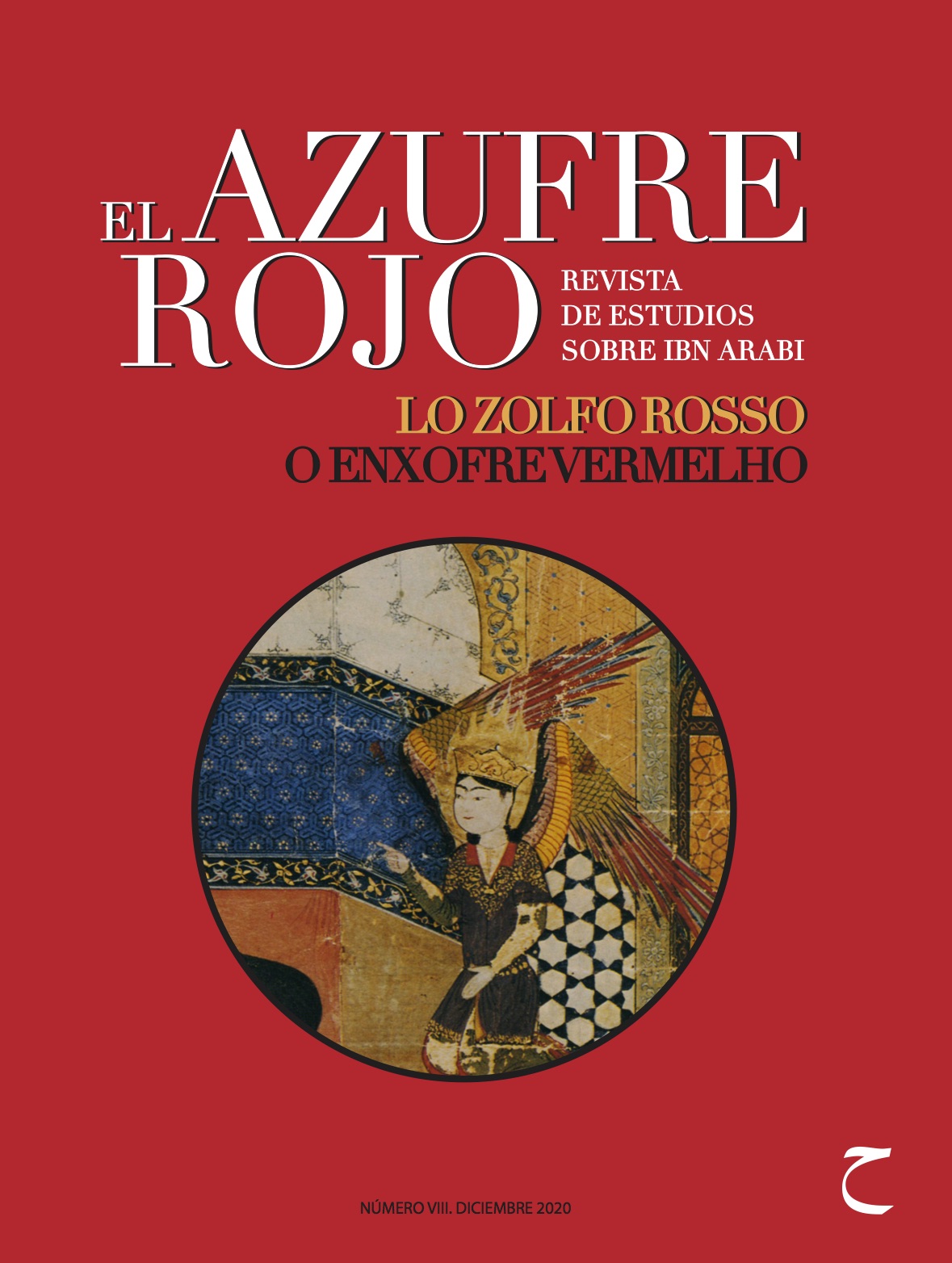HIYA, FEMINILIDADE E GÊNERO
Abstract
Resumo: Este artigo nasceu do “desassossego”, como diria Fernando Pessoa. Aqueles que conhecem o trabalho de Ibn ‘Arabī sabem da importância do feminino no seu pensamento e na consolidação das suas experiências espirituais. No entanto, ele também afirma que a mulher é segunda ao homem, surge de uma costela deste e lhe é inferior em um grau. Natural o desassossego, uma sensação de pinçamento cirúrgico e dolorido que não apenas inquieta a alma, mas penetra silenciosamente na sua carne mais profunda. Desfazer este nó intangível - mas opressor - é o que vamos tentar aqui, usando as próprias palavras do Šayḫ como fio condutor, a partir de seus vários conceitos associados à “triplicidade” como fundamento da vida.
Abstract: This article springs out of a “disquietness”, as Fernando Pessoa would say. Those who are familiar with Ibn ‘Arabī’s work know how important is the feminine in his thought as well in the consolidation of his spiritual experiences. However, he also states that the woman is second to man, rises from his rib and is one degree inferior to him. The “disquietness” so happen, naturally, as a sensation of a surgical and painful clamping that not only distresses the soul, but silently penetrates into its deepest flesh. To untie this intangible - but oppressive - knot, is what we will try here, by using the Sheikh’s very words as a guiding thread, looking for the various forms where his concept of triplicity shows up as foundation of life.
Downloads
-
Abstract394
-
pdf (Español (España))185
Riferimenti bibliografici
- Andrey Smirnov, Il vortice divino. Il monismo come interdipendenza tra zâhir-bâtin: il punto di vista musulmano e la filosofia mistica di Ibn ´Arabî, em Dialegesthai, 2008,
- Chiara Casseler (tradução), Kitāb al-Huwa (Il Libro del Sé Divino), Turim: Il Leone Verde, 2004.
- Caner Dagli (trad.), Fuṣūṣ al-ḥikam (The Ringstones of Wisdom), The Ringstones of Wisdom: Fuṣūṣ Al-ḥikam, Chicago, Great Books Of The Islamic World- Kazi Publications, 2004.
- Eric Winkel, Futūḥāt, chap. 298. The Alphabet : The Abstract Made Literal, book 2, ed. ʻAbd al-ʻAzīz Sulṭān Ṭāhir Manṣūb, 2016,
----------, Chap. 71. Mysteries of the Fast, Book 9, Futuhat Project, 2016.
-----------, Futūḥāt, chap. 72, Mysteries of the Pilgrimage: Book 10, Futuhat Project, 2016.
-----------, Futūḥāt, chap. 73, The Questions: Book 12, Futuhat Project, 2016.
------------, Futūḥāt, chap. 72, The Count: Book 11, Futuhat Project, 2016.
- Lawrence D. Tzuang, Kejie Fang, Paulo Nussenzveig, Shanhui Fan, Michal Lipson, “Non-reciprocal Phase Shift Induced by an Effective Magnetic Flux for Light”, em NATURE PHOTONICS, Vol. 8, pp. 701-705.
- Mohamed Haj Yousef, Ibn ‘Arabī, Time and Cosmology, New York-London, Routledge, 2008.
- R. W. J. Austin (trad.): Ibn al-‘Arabī: The bezels of wisdom. (Classics of Western Spirituality.), New York York, Paulist Press, 1980.
- Régis Blachère, Le Coran, Paris, Maisonneuve et Larose, 1966.
- Roberto Ahmad Cattani ( tradução), A Alquimia da Felicidade Perfeita, São Paulo: Landi, 2002.
- Su‘ād Ḥakīm, “Santidad y feminidad en la vida y obra de Ibn ‘Arabī”, Mujeres de Luz: la mística femenina y lo femenino en la mística, Pablo Beneito, Lorenzo Piera, Juan José Barcenilla (eds.),Trotta, 2001.
- Sachiko Murata, The Tao of Islam: Gender Relationship in Islamic Thought, New York, State University of New York Press, 1992.
- William Chittick, The Sufi Path of Knowledge : Ibn al -'Arabi's Metaphysics of Imagination, Albany : State University of New York Press, 1989
-----------, The Self-Disclosure of God: Principles of Ibn al-Arabi's Cosmology, Albany: State University of New York Press, 1998.


